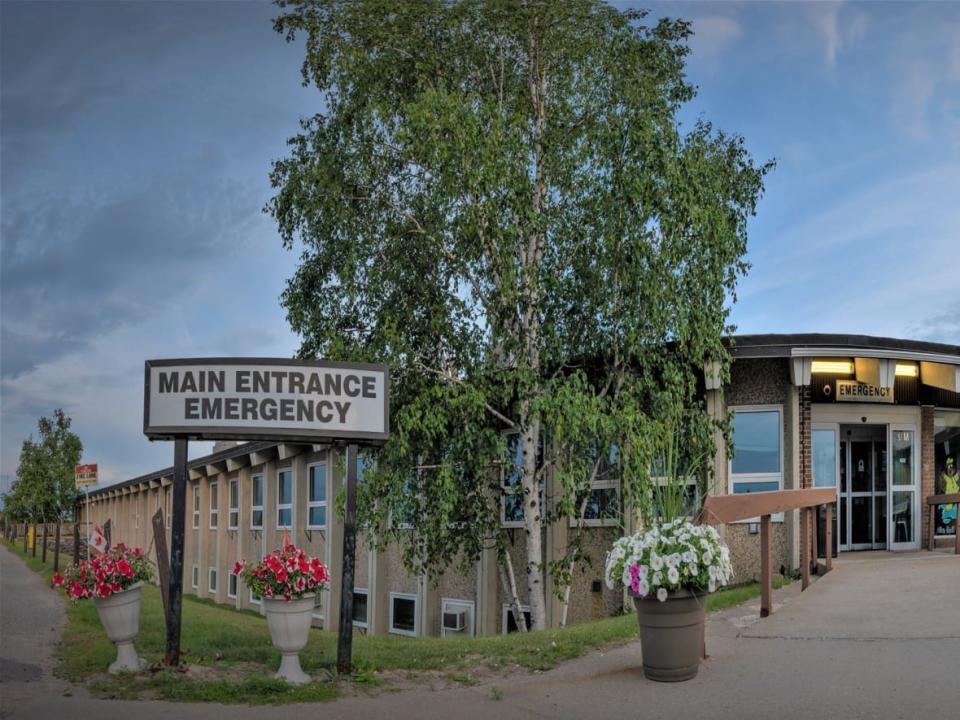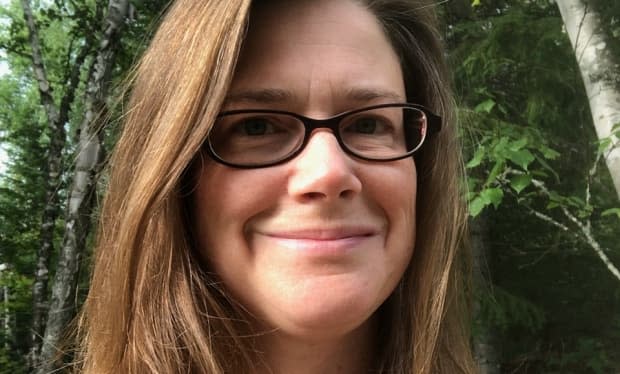The 'dire' doctor shortage in rural northwestern Ontario: 5 proposed solutions

More than a week after a shortage of available physicians closed the emergency room in Red Lake, health professionals are weighing in on possible solutions to the northern Ontario doctor shortage.
Chiefs of staff in northwestern Ontario have sent a briefing note to politicians and others with an interest in the issue, informing them of actions that could help.
Several physicians have also spoken with CBC about possible short- and long-term responses to the problem.
Two people were transported from Red Lake to Dryden by ambulance during the Red Lake closure.
The chair of the Northwest Chief of Staff Council said what happened there will likely happen in most small hospitals in the region in the next six months.
"It is very dire," Dr. Sara Van Der Loo said.

The government and the Ontario Medical Association (OMA) have already followed through on some solutions to the doctor shortage that physicians in the region had previously proposed — prior to the Red Lake closure. Those include:
Allowing rural northern physicians to work part time. The previous Rural and Northern Physicians Group Agreement (RNPGA), which covers much of northern Ontario, was criticized for requiring physicians to commit to full-time work. Critics said that was a deterrent for doctors looking to the north for a better work-life balance. The brand new Physician Services Agreement, ratified by doctors at the end of March, allows part-time work under the RNPGA contract.
Making it easier for physicians to hand over a practice by allowing RNPGA contracts to overlap so that an outgoing physician can mentor a new one. The new Physician Services Agreement allows for a three-month overlap.
Reassessing the number of physicians needed in northern communities and adjusting funding accordingly. Under the new Physician Services Agreement, the Ministry of Health and the OMA will establish a bilateral working group to complete a review by Dec. 31 of this year, with implementation scheduled for April 1, 2023.
Increasing the number of medical students in the province. Ontario has announced it is adding 160 undergraduate seats and 295 postgraduate positions to medical schools over the next five years, including 30 new undergraduate positions and 41 new residence spots at the Northern Ontario School of Medicine University (NOSM-U).
Here are five more possible solutions to the problem that have been proposed by the chiefs of staff and the physicians who spoke with CBC.
1. Providing rural and remote emergency physicians with real-time virtual access to specialists
One of the barriers to recruiting physicians to take on shifts in rural and remote emergency rooms is physicians' fear of finding themselves alone with a patient suffering from a condition they have no experience with, according to Dr. Sarah Newbery, the associate dean of physician workforce strategy at NOSM-U.

Northwestern Ontario could overcome this barrier by setting up a system of real-time virtual access to on-call specialists, she said.
British Columbia has such a system, which doctors can access from their smartphones, she added.
"They really are the envy of the country in terms of the way in which they support rural physicians in that province."
Setting up a similar system in Ontario would require the leadership of Ontario Health, the provincial agency that co-ordinates the province's health-care system, Newbery said.
Ontario Health told CBC in a statement it is "open to working with stakeholders to identify solutions to address emergency department closures in northern and rural areas."
2. Funding for travel, accommodations for residents to take elective rotations in rural and northern communities
Residents are learners who have completed their MD studies and are doing postgraduate training to become fully licensed physicians in their field of specialization.
They can choose to do elective rotations to get extra experience in areas that interest them.
But right now, they have to pay out of pocket for any travel and accommodation involved.
That can be a deterrent if the student is already paying rent on an apartment in southern Ontario, Newbery said.
"We know that one in five postgraduate residents who comes and does an elective in northern Ontario will come back for future work," Newbery said.
"So even if there is new funding required to create the kind of travel and accommodation bursary that would enable residents to come, the money that the ministry would save down the line in terms of locum positions, and in terms of this kind of crisis management that we find ourselves in now, would likely make that upfront cost of supporting travel and accommodation worthwhile."
The president and CEO of NOSM-U, Dr. Sarita Verma, said her institution intends to play a leading role in finding the funding and using its existing relationships with other universities to make the proposal a reality.
3. Ensure locums travelling to the region bring a resident from their home institution
Under the University of Toronto's Rural and Northern Initiative, locums associated with the U of T family medicine program bring residents with them to the north when they go there to practise.
Replicating the program with other schools shouldn't be difficult, Newbery said.
"Again, really, it's about matching the travel and accommodation. And then from my perspective, following up with those residents and looking at what the return on that investment is."
4. The College of Physicians and Surgeons of Ontario needs to make it easier to license international medical school graduates who want to work in the north
When international medical graduates, or IMGs, first arrive in Canada, the CPSO issues them a restricted licence and requires them to work under supervision for a year or more.
The physician recruiter for the district of Rainy River said he recruited a U.S.-trained physician around 2015, and officials had to appoint three other physicians to perform those mentorship and supervisory roles.
"The physicians are already busy. The reason we're in this kind of a position is that they're overworked," Todd Hamilton said.
Some communities don't even have three physicians, he said.

A spokesperson for the College of Physicians and Surgeons of Ontario said the supervision guidelines are set nationally by the Federation of Medical Regulatory Authorities of Canada, but there is room for flexibility.
"We certainly make exceptions for one supervisor providing supervision for multiple physicians and for remote supervision," said Shae Greenfield in an email.
That was not Hamilton's experience, he said.
There should be a clear pathway for physicians coming to work in the north that responds to the realities of the region, Van Der Loo said..
It should not fall to physicians to find the right person to talk to in order to make an exception to the rules.
5. More incentives and return-of-service obligations to bring physicians to the north
Hospital recruiters and chiefs of staff in northwestern Ontario are calling for more arrangements that exchange free or discounted tuition, debt relief or other opportunities for new medical graduates for a period of service to a rural northern community.
"The military can offer to cover tuition for physicians in — whether it's NOSM-U or any other medical school in Ontario —and they can get a five- to seven-year return of service from the family physician, so I don't understand why they can't do it for a rural community," Hamilton said.
Ontario currently has return-of-service programs requiring physicians trained outside Canada to serve in underserved communities as a condition of getting an unrestricted practice licence in the province.
Part of the problem with those programs, according to Newbery, is most communities in Ontario are now classed as underserved, meaning doctors need not travel as far away as northern Ontario to work in an underserved community.
"It may be that we need to create a bit of an enhancement for that kind of program for northern Ontario," Newbery said.
Asked whether the Ministry of Health would increase return-of-service agreements to bring doctors to the north, a spokesperson pointed to the ministry's existing incentive programs, but did not directly answer the question.
Verma, however, expressed doubt about the effectiveness of return-of-service programs.
"People will use these as ways to come and get their residency training … and then people just say, 'Well, I'm done now with my training,'" she said. "They'll get a bank loan and say, 'Here's the $500,000 I owe you. Bye.'"
System needs an overhaul
Verma told CBC the province needs to overhaul its system of health human resources planning and adopt a holistic approach.
Currently, she said, it has multiple agencies with dozens of programs running different elements of the system.
"You can just imagine what a disconnected, very chaotic system it is," she said.
"We need really smart business modelling mathematicians. …. We need an integrated, consistent, predictable system that is well funded over a long period of time."

Asked if anyone was taking the lead in reviewing the provincial system, Verma replied, "Not yet, because we just became a university on Friday."
NOSM-U, which was previously connected to Lakehead and Laurentian universities, aspires to become an influencer in the area of northern health policy, she said.
"In the meantime, there's nothing stopping the government from giving us a couple million dollars to set up a policy institute. You know? I mean, if you asked me, that's what I want."

